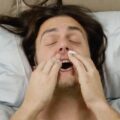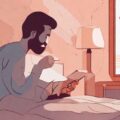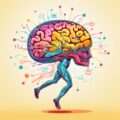Many people enjoy having a nightcap before bed – but is this habit helping or hurting sleep? When it comes to alcohol and sleep, the effects are quite complex.
The Complicated Relationship Between Alcohol and Sleep
Initially, alcohol can help some people fall asleep more quickly as it acts as a depressant on the central nervous system. However, things change once the alcohol wears off in the second half of the sleep cycle.
Alcohol Disrupts REM Sleep
REM (rapid eye movement) sleep is crucial for memory consolidation and feeling well-rested. During REM sleep, the brain is highly active. Alcohol withdrawal interrupts this key sleep phase, leading to less restorative rest.
Alcohol Causes Frequent Awakenings
Falling asleep is one thing, but staying asleep is another. Even if they fall asleep faster at first, people who drink alcohol close to bedtime tend to wake up frequently throughout the night due to alcohol’s disruptive effects.
Tips for Better Sleep Without Alcohol
If you enjoy an occasional nightcap but find your sleep could improve, consider these healthy sleep habits instead of alcohol:
- Unwind with herbal tea before bed
- Take a warm bath
- Listen to relaxing music
- Practice meditation or gentle yoga
- Keep your room cool, dark and quiet
FAQ
Is it OK to drink a little alcohol before bed?
Drinking a moderate amount of alcohol may help some people fall asleep faster. However, alcohol still interrupts REM sleep and leads to more nighttime awakenings. So it may not lead to higher quality sleep overall.
How long before bed should you stop drinking?
Ideally, stop drinking alcoholic beverages at least 4 hours before you plan to go to sleep. This allows time for the alcohol to clear your system so it doesn’t disrupt your sleep as much.
What’s better for sleep: beer or wine?
There is little difference between the effects of beer versus wine on sleep. Both contain alcohol which can negatively impact sleep quality and quantity.
Does alcohol affect deep sleep?
Yes, alcohol disrupts all stages of sleep, including slow-wave deep sleep in the first half of the night. This is key sleep for body repair, metabolism and cognitive function.
Can a little alcohol help you sleep better?
In small quantities, alcohol may help some people get drowsy and fall asleep faster. However, even one drink can interrupt REM and deep sleep later in the night. So better sleep quality may not occur.









